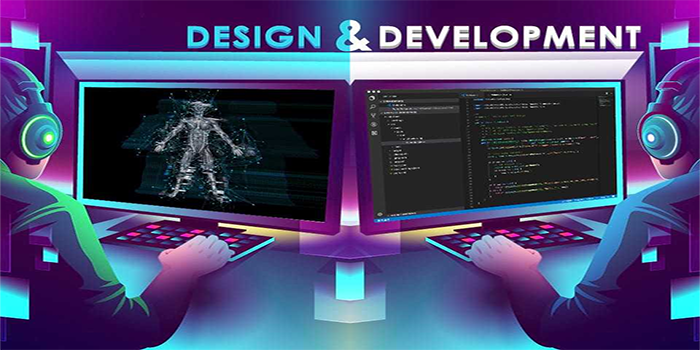
Game design is the process of designing the content and rules of a game in order to create an enjoyable, engaging and balanced experience. The process involves the creation of characters, environments, stories, levels, mechanics, and other elements. It is a creative and iterative process that involves the collaboration of multiple disciplines, such as game programming, art, animation, sound design, and more. The goal of game design is to provide players with an enjoyable, meaningful and challenging gaming experience.
Game Design Training Course
This course will provide a comprehensive and practical approach to game design. It will cover the fundamentals of game design, game theory, and game mechanics. The course will also provide an introduction to the tools and techniques used to develop video games. Through a series of lectures, assignments, and hands–on activities, students will gain a strong understanding of game design fundamentals.
The course will begin with an introduction to game design, focusing on the history of video games, the goals of game design, and the different types of games. Students will learn the importance of game theory and how to apply it to their design. They will also explore game mechanics, the process of creating a game, and the fundamentals of creating a playable game. Next, the course will cover the basics of programming. Students will learn how to create a basic game engine, how to use programming languages to create games, and how to create custom game logic through scripting.
They will also learn how to use existing game engines and libraries to create their own games. The course will then move into 2D and 3D design. Students will learn about the basics of computer graphics, including the fundamentals of modeling, texturing, animation, and lighting. They will also explore the different types of game engines and how to create their own custom game engine. Finally, the course will end with a discussion about the future of game design. Students will be introduced to the tools and techniques used to create virtual reality games, mobile games, and console games. They will also gain an understanding of the business side of game design, including marketing and monetization strategies.
Which Course is Best for Game Designing?
The best course for game designing is a Bachelor‘s degree in game design or a related field such as computer science, programming, or multimedia design. You can also take specialized courses in game design and development, such as 3D game design, virtual reality game design, game engine programming, game mechanics, and game design theory. Additionally, you may want to consider taking a certification course in game design, such as the Unity Certification Program, to improve your skills and increase your chances of getting hired.
How do become a game designer?
1. Earn a Degree: Most game designers have at least a bachelor’s degree in game design, computer science, software engineering, or a related field.
2. Build Your Portfolio: Once you have your degree, start creating a portfolio of your work.
3. Gain Experience: Take on freelance projects and internships to gain experience and build up your portfolio.
4. Get a Job: After you have your portfolio, apply for jobs at game design studios and other organizations.
5. Stay Current: Game design is an ever–evolving field, so stay up to date on the latest technology, software, and trends.
Best University for Game Design Training Course in India
1. National Institute of Design (NID), Ahmedabad
2. Indian Institute of Technology (IIT), Mumbai
3. Srishti Institute of Art, Design and Technology, Bengaluru
4. National Institute of Design (NID), Gandhinagar
5. National Institute of Technology (NIT), Calicut
6. International Institute of Information Technology (IIIT), Hyderabad
7. Indian Institute of Technology (IIT), Guwahati
8. National Institute of Technology (NIT), Surathkal
9. Symbiosis Institute of Technology, Pune
10. Manipal Institute of Technology, Manipal






